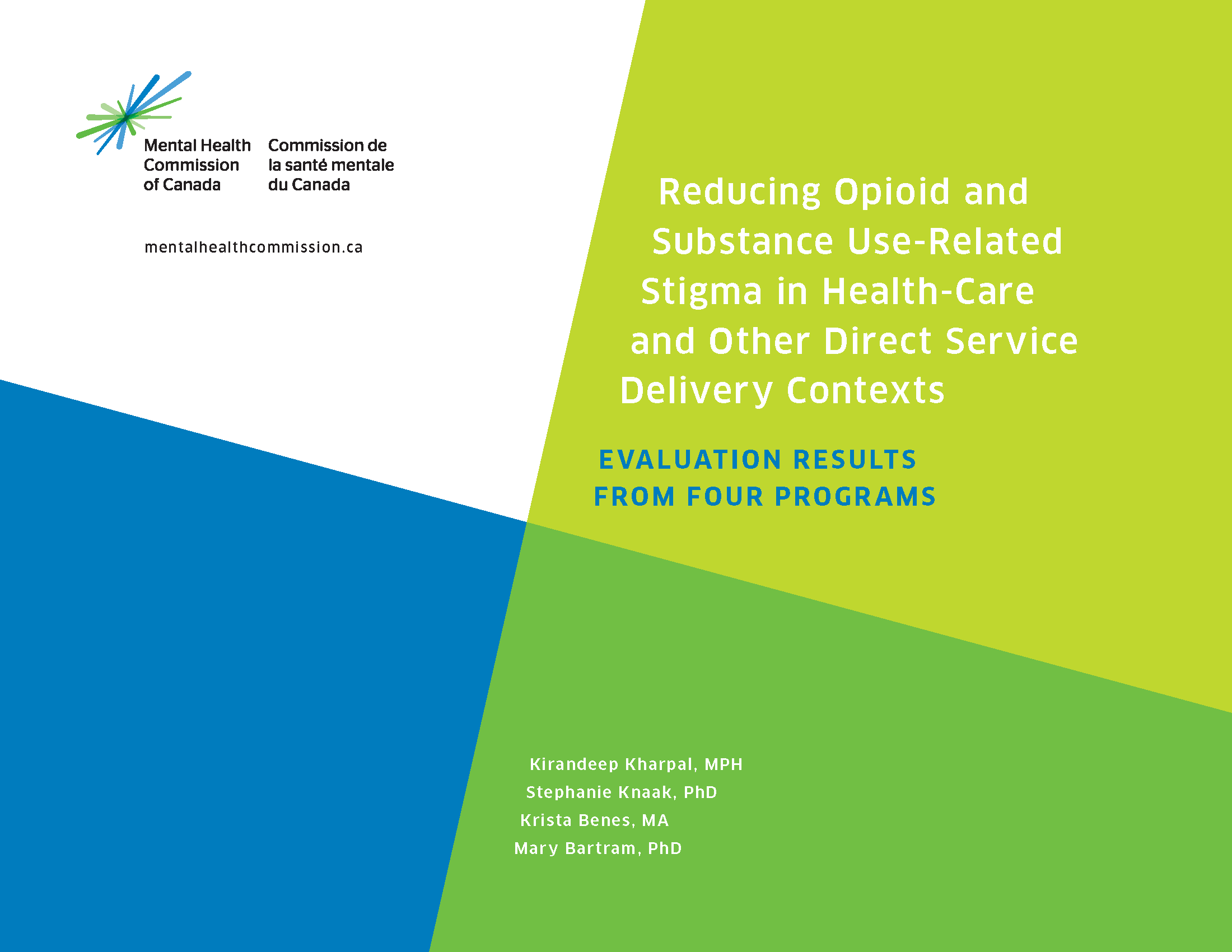If you are in distress, you can call or text 988 at any time. If it is an emergency, call 9-1-1 or go to your local emergency department.
- Case Studies, Professional Resources
Structural Stigma Measures Case Study – EMBER Study
In 2019, the Mental Health Commission of Canada (MHCC) launched a multi-year project to better understand the problem of mental health- and substance use-related structural stigma in health-care contexts. Its objective was to identify gaps and reduce stigma, both at policy, practice, and system levels and within the organizational culture of health care. Since then, MHCC developed two measurement scales to help health-care organizations identify areas for improvement, monitor progress, and demonstrate their commitment to a stigma-free health system. As part of the development, field testing was conducted to validate the scale’s reliability. The MHCC worked with health‑care organizations who were engaged in quality improvement projects focused on stigma reduction. The scales were embedded within a research study specific to each site. The following case study describes the approach, results, and lessons learned used to implement the measurement scales.Spotlight on Early Adopters – Piloting Scales to Measure Structural Stigma Related to Mental Health and Substance Use (MHSU) in Health‑care Settings
- Case Studies, Professional Resources
Structural Stigma Measures Case Study – EMBER Study
Structural Stigma Measures Case Study – EMBER Study
- Stigma, Structural Stigma
In 2019, the Mental Health Commission of Canada (MHCC) launched a multi-year project to better understand the problem of mental health- and substance use-related structural stigma in health-care contexts. Its objective was to identify gaps and reduce stigma, both at policy, practice, and system levels and within the organizational culture of health care. Since then, MHCC developed two measurement scales to help health-care organizations identify areas for improvement, monitor progress, and demonstrate their commitment to a stigma-free health system. As part of the development, field testing was conducted to validate the scale’s reliability. The MHCC worked with health‑care organizations who were engaged in quality improvement projects focused on stigma reduction. The scales were embedded within a research study specific to each site. The following case study describes the approach, results, and lessons learned used to implement the measurement scales.
Spotlight on Early Adopters – Piloting Scales to Measure Structural Stigma Related to Mental Health and Substance Use (MHSU) in Health‑care Settings
SHARE THIS PAGE
RELATED

Review our Assessment Framework for Mental Health Apps — a national framework containing key standards for safe, quality, and effective mental health apps in Canada.

To help expand the use of e-mental health services, we developed four online learning modules based on our Toolkit for E-Mental Health Implementation, in collaboration with the Centre for Addiction and Mental Health (CAMH).

Stepped Care 2.0© (SC2.0) is a transformative model for organizing and delivering evidence-informed mental health and substance use services.

